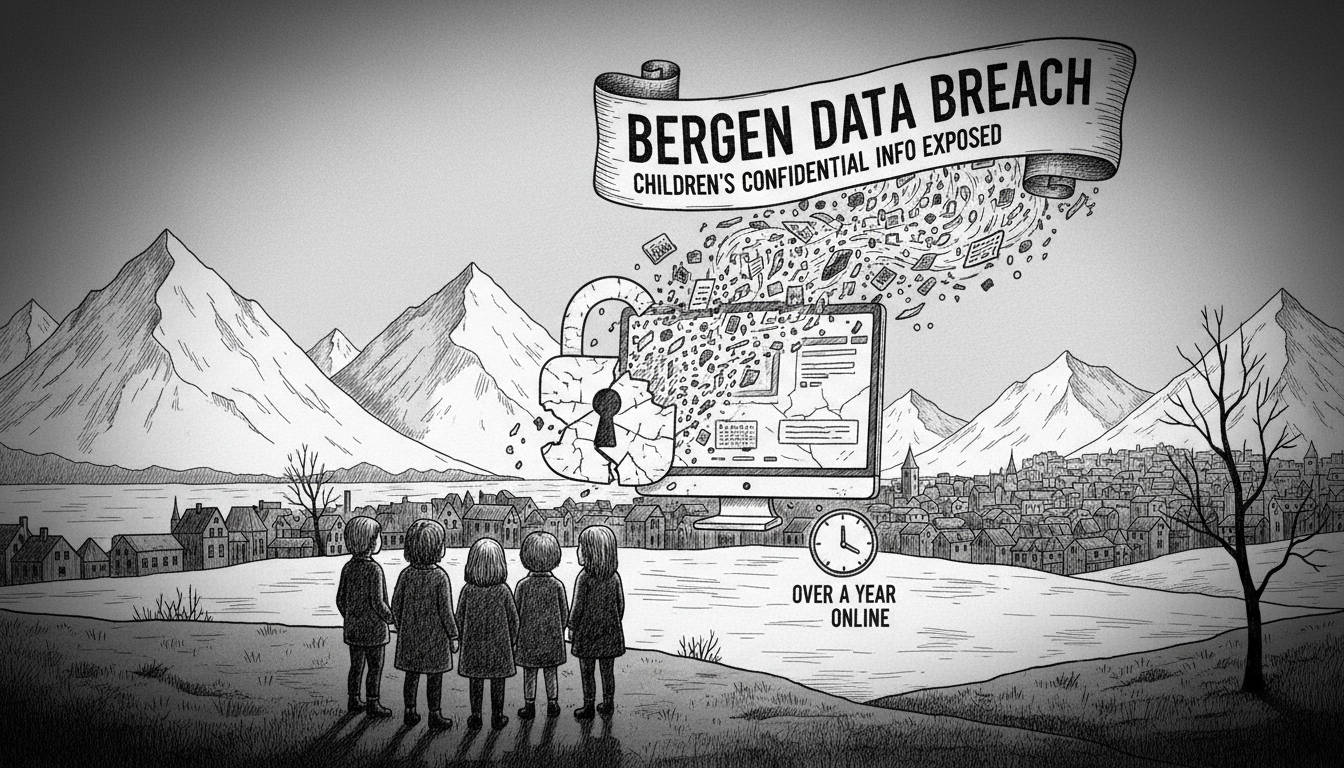Bergen officials discovered a serious security breach affecting children in crisis centers. Confidential information about these vulnerable children remained publicly accessible on municipal websites for more than twelve months.
Social councilor Charlotte Spurkeland learned about the data exposure in August last year. She described the situation as extremely serious. The protected details could have endangered children living in crisis centers.
Spurkeland claims she acted immediately upon learning about the security failure. She ordered removal of the sensitive information within one week of discovery. But new revelations show the data remained available online throughout this period.
Norwegian data protection regulations strictly govern information about children in crisis situations. These children typically come from dangerous home environments. Their locations and identities require maximum protection from potential abusers.
This incident represents a major failure in Bergen's data handling protocols. Municipal websites should never display such sensitive information. The prolonged exposure period suggests inadequate monitoring systems.
Similar data breaches have occurred in other Nordic municipalities recently. Oslo faced criticism last year for mishandling refugee children's data. Stockholm also reported security lapses involving protective service records.
Norwegian law mandates immediate reporting of such breaches to the Data Protection Authority. It remains unclear whether proper reporting procedures were followed in this case. The extended timeline raises questions about transparency.
Children's ombudsmen in Norway have repeatedly warned about digital security risks. They emphasize that vulnerable children deserve extra protection. Digital systems must prioritize safety over convenience.
Bergen municipality now faces scrutiny over its data management practices. Opposition politicians demand explanations about the delayed response. They question why the problem persisted for so long after initial discovery.
The incident highlights broader challenges in Nordic digital governance. Municipalities struggle to balance transparency with security. Rapid digitalization sometimes outpaces proper safeguards.
Parents and child protection advocates express deep concern. They want assurances that similar breaches will not recur. Many call for independent reviews of municipal data systems.
This case may trigger reforms in how Norwegian cities handle sensitive information. Other municipalities will likely examine their own security protocols. The national data protection authority could impose stricter requirements.
Bergen officials must now restore public trust while fixing systemic flaws. The children affected deserve comprehensive support. Their safety remains the paramount concern moving forward.

